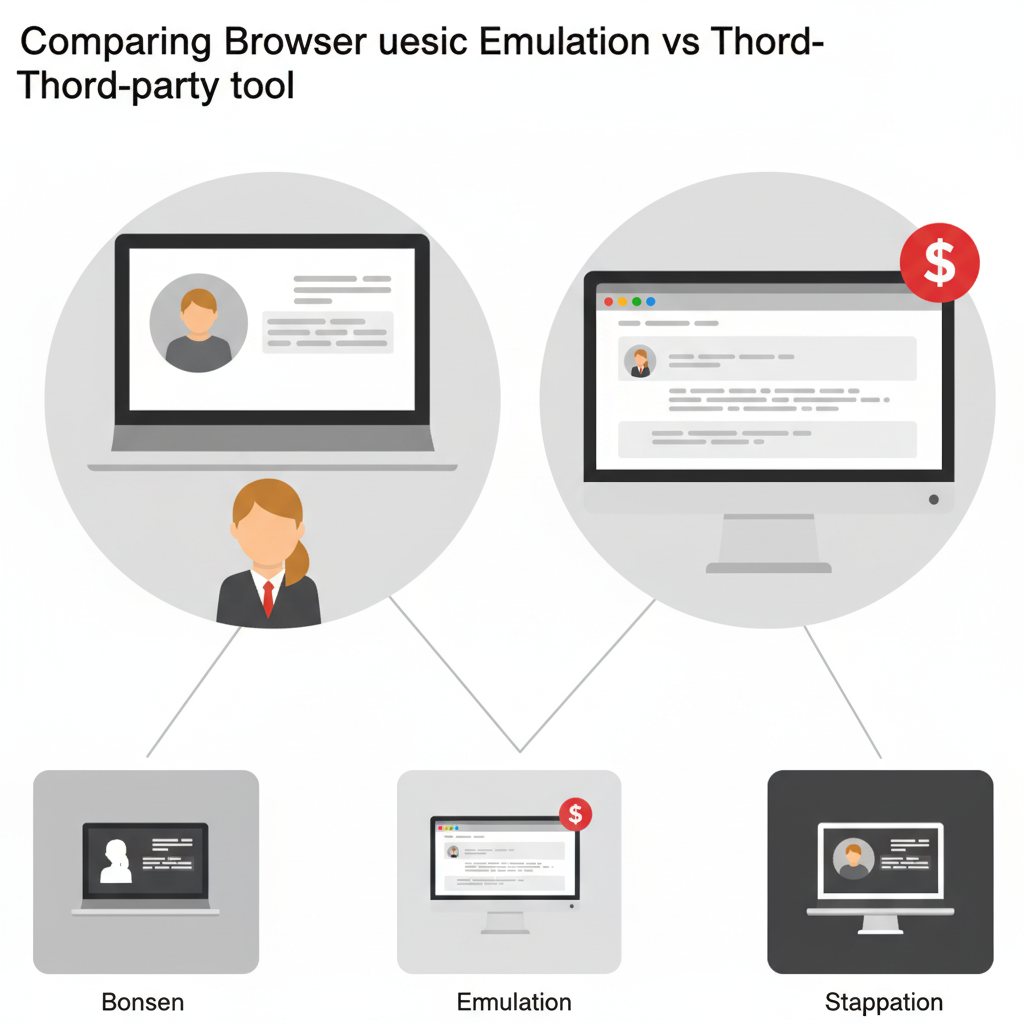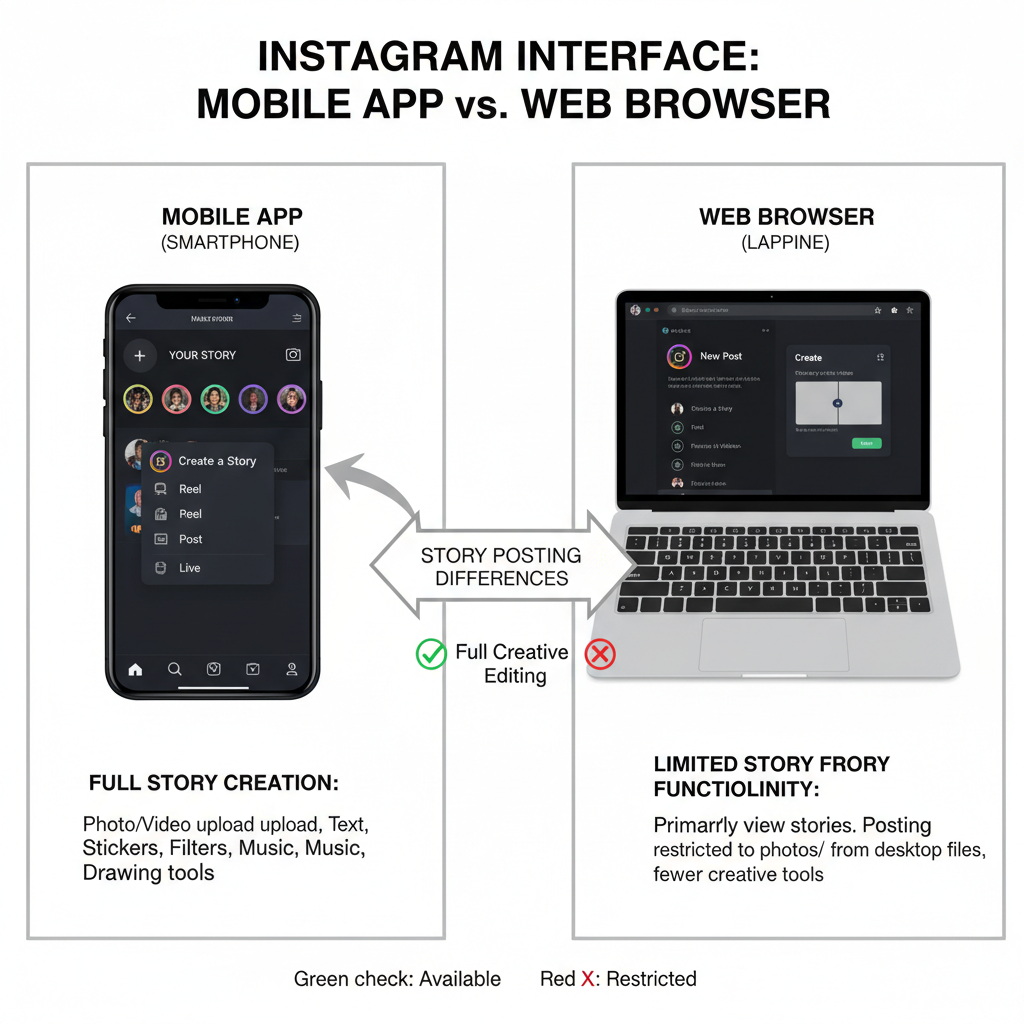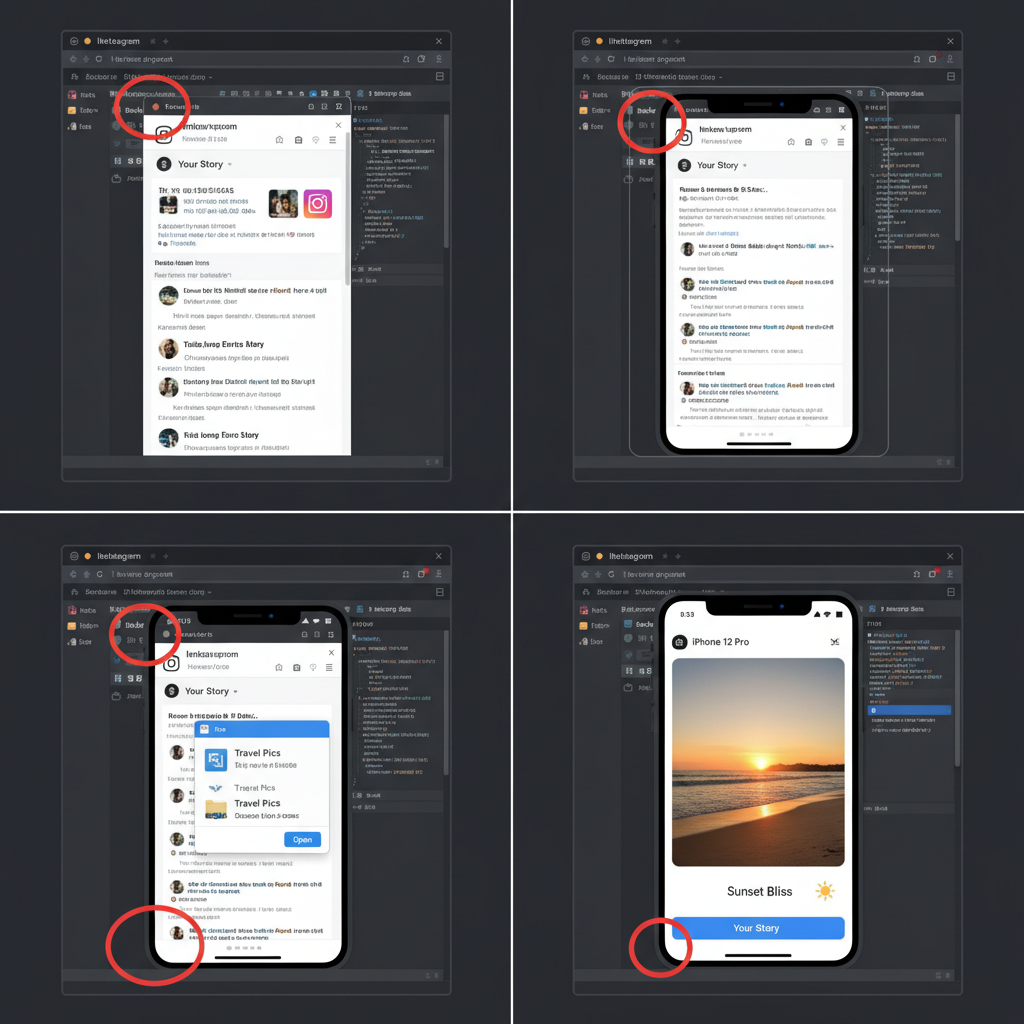Post Instagram Stories from Laptop: Step-by-Step Guide
Learn efficient methods to post Instagram Stories from your laptop using browser mobile emulation and third-party scheduling tools.

Introduction: Why Posting Instagram Stories from a Laptop Matters
Instagram Stories remain one of the most interactive ways to engage followers—great for sharing behind-the-scenes glimpses, quick updates, polls, and immersive media. For many content creators, marketers, and photographers, however, creative assets originate on desktop or laptop computers. This raises a common need: how can you post Instagram Stories from a laptop efficiently and safely?
Uploading directly from your laptop saves time, avoids the hassle of file transfers, and lets you harness professional editing tools before publishing. In this guide, we’ll break down Instagram’s current limitations, reveal proven workarounds, and share tips to ensure your Stories shine—whether you post directly from your desktop browser or through supported third-party platforms.

---
Overview of Instagram’s Mobile-First Design Limitations
Instagram was originally designed with mobile use at its core. Its app architecture, interface, and most features focus on iOS and Android. While you can log into Instagram from a desktop browser, the official web version currently offers:
- Viewing posts, Stories, and reels
- Basic interactions such as likes, comments, and DMs
- Uploading feed posts (introduced recently)
Key limitations when using desktop:
- No native option to create or upload Stories
- Absence of many creative elements like stickers, GIFs, polls
- Story camera features, AR lenses, and filters only available on mobile
---
Using Instagram’s Web Version and Story-Posting Reality
As of mid-2024, Instagram’s desktop site does not support new Story uploads. You can view other accounts’ Stories, but the “Your Story” creation icon appears only on mobile. This mobile-only restriction keeps usage aligned with Instagram’s preferred engagement model.
For creators and social media managers, this means extra steps are necessary to bridge the desktop-to-mobile gap.

---
Workaround 1: Browser Developer Tools for Mobile Emulation
A popular method for bypassing the desktop Story restriction is using developer tools in Chrome or Edge to emulate a mobile device. Device emulation prompts Instagram’s web app to display mobile-only functions, including the Story upload option.
Why this method works:
When the browser sends a mobile device signal, Instagram activates mobile interface features not normally visible on desktop.
---
Step-by-Step Guide to Posting Stories Using Mobile Emulation
Here’s how to post Instagram Stories directly from your laptop using Google Chrome (similar for Microsoft Edge):
- Open Instagram in your browser
- Go to `https://www.instagram.com` and log in.
- Launch Developer Tools
- Press `Ctrl + Shift + I` (Windows) or `Cmd + Option + I` (Mac), or right-click and choose Inspect.
- Enable Device Toolbar
- Click the phone/tablet icon or press `Ctrl + Shift + M`.
- Select a modern smartphone preset like iPhone 12 Pro.
- Refresh the page
- Press `F5` to reload the mobile interface.
- Open the Story creation tool
- Click on Your Story (camera with a plus symbol) and choose an image or video from your files.
- Add creative elements
- Use available text overlays, drawing tools, and repositioning.
- Publish
- Click Send to Your Story to share.
Pro Tip: Use vertical 1080x1920 media. Optimize file size for quicker uploads without losing quality.---
Workaround 2: Posting via Third-Party Social Media Management Tools
If you regularly post Stories, dedicated social media scheduling tools can integrate with Instagram via Facebook’s Graph API. These allow you to upload, schedule, and sometimes collaborate on content from your laptop.
Examples:
- Later
- Buffer
- Hootsuite
- Meta Business Suite (official)
How it works:
Content is uploaded in the tool’s dashboard and scheduled for posting. In some cases, you’ll receive a mobile notification to confirm the final post due to API constraints.

---
Pros and Cons of the Two Main Methods
| Method | Pros | Cons |
|---|---|---|
| Browser Developer Tools (Mobile Emulation) |
|
|
| Third-Party Tools |
|
|
---
Tips for Optimizing Story Content for Desktop Upload
When creating and uploading from a laptop, follow these best practices:
Adjust Aspect Ratio
Use the standard 9:16 vertical format (1080px x 1920px) to avoid cropping or unwanted borders.
Prepare High-Resolution Assets
Ensure clear visual quality on mobile screens with at least 1080x1920 resolution.
Keep File Sizes Small
Target under 15MB for videos to enable smoother upload speeds.
Add Creative Elements Before Upload
Since desktop tools may lack mobile stickers/filters, design text and graphics in editing software like Photoshop, Canva, or Premiere.
---
Policy Compliance and Account Security
When using workarounds, remember:
- Respect Instagram Policies: Stick to official APIs where possible to avoid account flags.
- Choose Trusted Platforms: Use only reputable tools with secure integrations.
- Enable 2FA: Protect accounts when logging in from new devices.
- Honor Copyright: Upload only media you own or have rights to publish.
---
Conclusion: Select the Workflow That Fits Your Needs
Instagram’s desktop web app may lack a native Story upload option, but creators can still share directly from a laptop using either:
- Browser developer tools for quick, free uploads.
- Official third-party managers for scheduled, multi-account campaigns.
For occasional posts, browser emulation is straightforward. For long-term strategy, invest in a platform that supports analytics and planning. With these methods, you can produce polished Instagram Stories without leaving your desktop—boosting efficiency while maintaining the engaging quality your audience expects.
---
Bottom Line: Yes, posting Instagram Stories from a laptop is possible using mobile emulation in your browser or approved third-party scheduling tools. Choose the route best aligned with your creative process and campaign objectives, and start sharing your story today.



